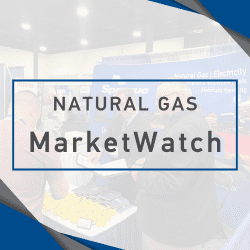Recap: After falling by 3% in early morning trading, oil futures resumed their move to the upside Thursday, on reports that the U.S. may not release crude oil reserves in an effort to stem rising gasoline prices, putting the focus back on tight global supplies. The United States has used its strategic reserves on occasion, usually after hurricanes or other supply disruptions. However, since ending a 40-year ban on crude exports in 2015, the nation has become a significant exporter, and has not broached cutting exports. Oil markets have been on a steady rise due to tight supplies worldwide as demand recovered more quickly than expected from the pandemic in big import markets like China. Adding to the bullish tone are expectations that demand could rise between 150,000 to 500,000 barrels per day, as users of natural gas switch to oil due to high gas prices. November WTI added 87 cents, or 1.12%, to settle at $78.30 a barrel, while December Brent tacked on $81.95 a barrel, up 87 cents, or 1.07%.
Booming intrastate trucking and lower production have left the U.S. with the fewest days of supply of heating oil in more than two decades ahead of the winter. Inventories of diesel used for heating and transportation are enough to meet 31.2 days of demand, that's the tightest it has been for this time of the year since 2000, according to the Energy Information Administration. The dearth of supply comes as a global natural gas shortage brought prices for that fuel in the U.S. to a 12-year high earlier this week, motivating some power plants to switch to heating oil. The result will be that Americans that live in part of the Northeast could be strapped with soaring heating costs this winter. November heating oil added .0176 cents, at $2.4596 per gallon. November RBO added .0262 cents, to settle at $2.3344 per gallon.
Technical Analysis: As expected, the downward move in oil prices was brief, as the underlying fundamentals, as well as the technical outlook are overly bullish. Expectations for higher demand due to the switching from natural gas to crude oil have experts estimating that demand could jump to 500,000 barrels per day. WTI failed below $75 and came roaring back as buyers lurking below loaded up on length. A sustained move above $78 will most likely pull in more buyers, with this market pushing toward the $80-$85 range. Support is seen at $75 and below that at $74.20. A break below $70 will shift the near-term momentum to the downside.
Fundamental News: U.S. President Joe Biden’s national security adviser, Jake Sullivan, urged energy suppliers to increase flows to meet demand, saying the U.S. was concerned about their failure to do so.
A Bloomberg News reporter said in a tweet that the U.S. Department of Energy is not considering tapping into its Strategic Petroleum Reserves "at this time", nor is it pursuing a ban on oil exports. An Energy Department spokesperson said the department has no plan to take action “at this time” to tap into the SPR. Later, the U.S. Department of Energy said all "tools are always on the table" to tackle tight energy supply conditions in the market. This comes after the Financial Times on Wednesday quoted the U.S. Energy Secretary Jennifer Granholm as saying that the administration is considering tapping the SPR, while also not ruling out a ban on crude oil exports.
Russia’s Deputy Energy Minister, Pavel Sorokin, said Russia does not want the oil market to overheat and is aiming for global crude prices to settle long-term into a $45-$60/barrel range. He said the recent surge in the market appeared to be part of a commodities super-cycle that the OPEC+ coalition would have to monitor closely.
Goldman Sachs said a likely release of crude oil from the U.S. Strategic Petroleum Reserve, which could be up to 60 million barrels, only posed a $3/barrel downside risk to its year-end $90/barrel Brent price forecast. It added that a ban on U.S. crude exports "would significantly disrupt the U.S. oil market, with a likely bullish impact on U.S. retail fuel prices that price off Brent".
Early Market Call – as of 8:20 AM EDT
WTI – Nov $78.87, up 56 cents
RBOB – Nov $2.3430, up 88 points
HO – Nov $2.4702, up 1.05 cents
View the Sprague Refined Products Market Watch Report in a downloadable pdf format by clicking below.
Click to view more online:
Heating Oil Supplier
Diesel Supplier
View market updates
View our refined products glossary
Go to SpraguePORT online










